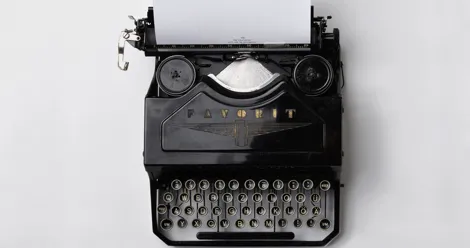
An Open Letter to People Who Don’t Think They Need to Read Diversely
This content contains affiliate links. When you buy through these links, we may earn an affiliate commission.
I love old, dead white men. There. I said it. F. Scott Fitzgerald is my boy. Tolstoy, Dickens, Steinbeck, Orwell, and Nabokov—Give me all the books. I even have a Vonnegut quote tattooed on my wrist. But because of that love, for the longest time, I experienced a very narrow sliver of what literature has to offer. The worst thing about that was that I didn’t know it.
Sure, I read some diverse fiction when I was in high school. I read Things Fall Apart by Chinua Achebe, The Sound of Waves by Yukio Mishima, Anowa by Ama Ata Aidoo, Narrative of the Life of Frederick Douglass by Frederick Douglass, and The Lion and the Jewel by Wole Soyinka. These aren’t the only diverse books that my classes read, because I know my teachers explicitly made an effort to introduce us suburban kids to diverse authors. But the thing that didn’t sink in then was why reading diversely is important.
That wasn’t a lesson I learned until college when I took a class on literary theory. That class, especially the words of my peers who all came from different backgrounds, taught me to see a literary work through another’s eyes. So when I graduated and started a job at my old high school, my old English teacher was tickled to hear me say, “I have a problem with this curriculum. Just too many old, dead white guys.”
That doesn’t mean I was putting my money where my mouth was though. Scrolling back through my “read” shelf on Goodreads, I see my reading looking a lot like this: dead white dude, dead white dude, dead white dude, living white dude, living white woman, dead white dude, hispanic woman whose book was assigned…. Seriously, yikes.
You might be thinking, well, who cares? Read what you want to read. But there are so many problems with the idea that what I wanted to read could only be written by dead white guys. That statement itself hides the toxic assumption that authors of color couldn’t possibly write something that is relatable to a white reader. Like, what?
A good story written well is relatable. Period. If you can’t relate to it, it might not be a good story. I don’t know about you, but I have read plenty of stories I just couldn’t connect with. Many of those stories were written by—you guessed it—old dead white guys. Relating to and empathizing with a character is the entire point of fiction! This has everything to do with how skilled the writing is and nothing to do with the race, gender, sexuality, or class of the writer. A good story is a good story. The end.
Still, many people see reading diversely as just an excuse to pat yourself on the back. That is so false. In Book Riot’s “Reading Diversely FAQ” series, Amanda Nelson really brings home that point in part four of the series:
“As far as “just” filling a quota: that assumes that people of color don’t write books you would’ve been interested in naturally, and that reading books by authors who aren’t white is “just” to be done to satisfy some external goal. By diversifying your reading, you’re actively doing something to combat structural racism (especially if you’re in the U.S.), and you’re setting yourself up for a richer, more interesting reading life.”
One of the most important reasons why I try to read diversely is because I wholly believe in the power of story. Story is transformative. It allows you to, for at least a little while, become someone else. When a story is written well, you can experience another time and place so profoundly that it changes you. We should want to know what it is like to experience the lives of people different from us. And when we do, what might strike us the most is seeing that on the inside, we’re not all that different. Like Amanda said, that makes for “a richer, more interesting reading life.” That’s true. But it also makes for a kinder life, because people who can step outside their safe readerly bubbles will find there a capacity to care for their fellow human beings like they never thought they could before.
Now, I can’t say that I’m perfect or that 50% of all the books I read are by authors of color, but I am more conscious of what I read now. One of the biggest things that helped me with that was Litsy. For a while, every month, I would post my reading stats. The first time I did it, I was shocked. I read 15 books that month, but only three of them were written by authors of color. That didn’t seem like enough, because I truly wanted to experience the lives of people who aren’t exactly like me. (I mean, I’m already living that life. I know what happens in it.) So I upped my game, and Book Riot’s diverse reading recs honestly helped a lot.









